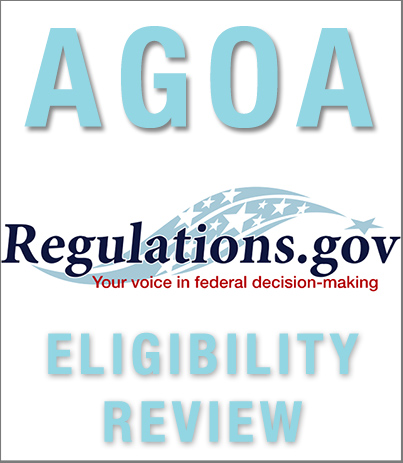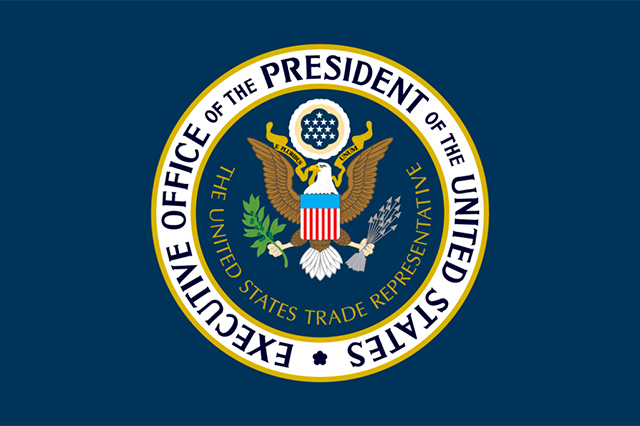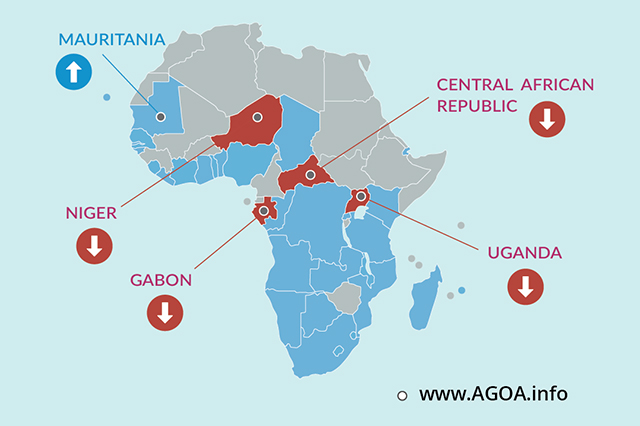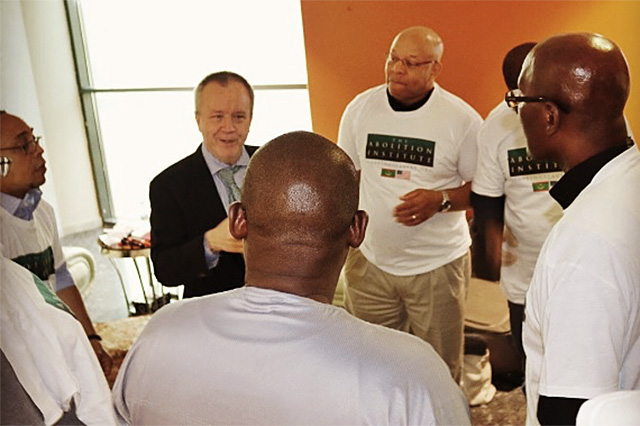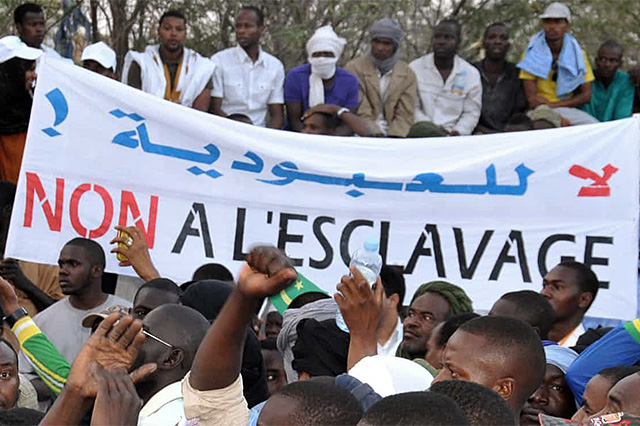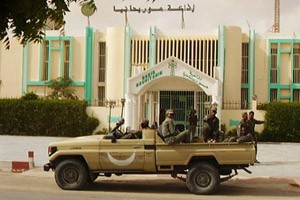Country Info: Mauritania
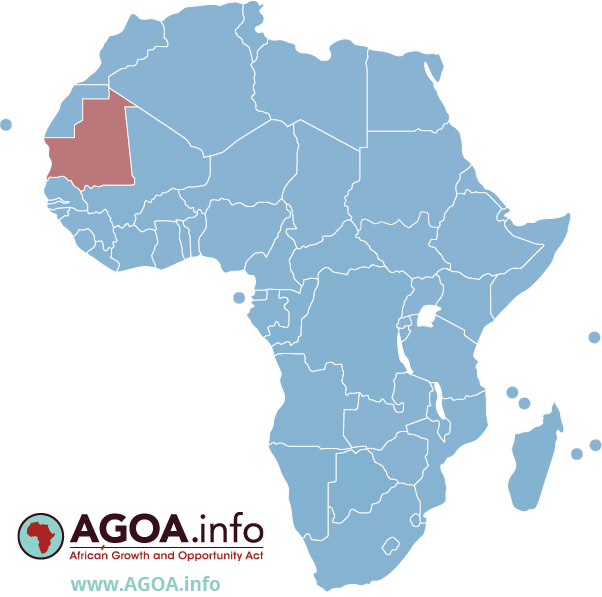
Bilateral Trade by Sector: United States - Mauritania
Value ('1000 dollars), US 'domestic exports' *, US 'imports for consumption' / Includes year-to-date data
Economic Background
[Note: Mauritania has had its AGOA preferences reinstated effective 1 January 2024]
Mauritania's economy is dominated by extractive industries (oil and mines), fisheries, livestock, agriculture, and services. Half the population still depends on farming and raising livestock, even though many nomads and subsistence farmers were forced into the cities by recurrent droughts in the 1970s, 1980s, 2000s, and 2017. Recently, GDP growth has been driven largely by foreign investment in the mining and oil sectors.
Mauritania's extensive mineral resources include iron ore, gold, copper, gypsum, and phosphate rock, and exploration is ongoing for tantalum, uranium, crude oil, and natural gas. Extractive commodities make up about three-quarters of Mauritania's total exports, subjecting the economy to price swings in world commodity markets. Mining is also a growing source of government revenue, rising from 13% to 30% of total revenue from 2006 to 2014. The nation's coastal waters are among the richest fishing areas in the world, and fishing accounts for about 15% of budget revenues, 45% of foreign currency earnings. Mauritania processes a total of 1,800,000 tons of fish per year, but overexploitation by foreign and national fleets threaten the sustainability of this key source of revenue.
The economy is highly sensitive to international food and extractive commodity prices. Other risks to Mauritania's economy include its recurring droughts, dependence on foreign aid and investment, and insecurity in neighboring Mali, as well as significant shortages of infrastructure, institutional capacity, and human capital. In December 2017, Mauritania and the IMF agreed to a three year agreement under the Extended Credit Facility to foster economic growth, maintain macroeconomic stability, and reduce poverty. Investment in agriculture and infrastructure are the largest components of the country’s public expenditures.
Agricultural products
rice, milk, goat milk, sheep milk, sorghum, mutton, beef, camel milk, camel meat, dates
Industries
fish processing, oil production, mining (iron ore, gold, copper)
note: gypsum deposits have never been exploited
Industrial production growth rate
1% (2017 est.)
(Source: World Factbook, 2021)


